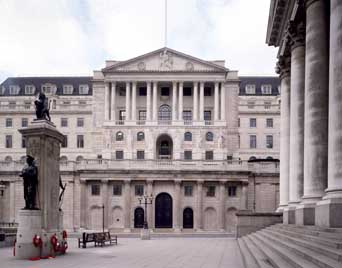The latest inflationary increases could have "unexpected" consequences for defined benefit (DB) pension schemes, industry experts have warned, after the Consumer Prices Index (CPI) rose by 10.1 per cent in September 2022.
XPS Pensions explained that while most private sector DB pensions will be increased next year based on these latest inflation figures, those members who have already retired could be limited by inflation caps.
Although the level of these caps varies from scheme to scheme, XPS noted that they are typically between 3-5 per cent, meaning that the average DB pensioner could be missing out on annual income of £500, equating to around £8,000 over a lifetime.
Despite market turmoil following the mini-Budget, XPS Pensions Group senior consultant, Charlotte Jones, also noted that, contrary to recent reports, most DB pension schemes are doing well from a funding perspective.
"XPS’s DB:UK funding tracker estimates that schemes currently have over £160bn of surplus funds following the sharp rise in gilt yields seen in the past few weeks," she continued.
“With schemes’ funding improving during a cost-of-living crisis, pensioners of DB schemes may ask whether those excess funds could be used to help them pay their bills this winter.
"At XPS we’re seeing pension schemes looking at various options to support their members through this challenging period and especially to see if they can help those members that will see their retirement income fall in real terms.”
Indeed, Hymans Robertson senior investment consultant, Ben Farmer, suggested that the latest figures will "no doubt raise the question with pension scheme trustees, and sponsoring employers, of whether to award members discretionary increases to benefits".
"These conversations often haven’t taken place since the 1990s, when the macroeconomic and pensions landscapes looked markedly different," he continued.
"The balance here is the desire to protect pensioner members in the current high inflation environment, versus the increase in pension scheme liabilities this would cause, at a time when many DB pension schemes are already in a funding deficit seeing funding challenges.”
However, there could be unexpected consequences for some schemes, as LCP partner and inflation expert, Jonathan Camfield, pointed out that the consequences of inflation for DB pension scheme funding can be wide ranging depending on individual circumstances.
In particular, he explained it could be more expensive for those schemes with rules providing more generous inflation protection, as based on today’s figures, an uncapped inflation increase would be around 5.1 per cent (CPI) or 7.6 per cent (RPI) higher than a 5 per cent cap.
“When it comes to DB scheme funding, the impact of inflation will vary hugely from scheme to scheme," he continued.
"The more challenging impact comes for schemes with uncapped inflation increases, particularly if those schemes are not fully inflation protected in their assets. With the inflation outlook being so uncertain, it is important that schemes understand and review their exposure to inflation risk on a regular basis”.
In addition to this, Camfield noted that the impact of inflation on scheme funding will depend substantially on the extent to which schemes have ‘hedged’ their exposure to inflation.
Although many schemes will have taken steps to ensure they hold assets which substantially rise in line with inflation so as to reduce the negative impact of a rise in inflation, Camfield pointed out that the recent market turmoil has seen some schemes reduce their hedging, leaving them more exposed to longer term persistent inflation.
Standard Life senior business development manager, Rhian Littlewood, also highlighted the figures as a "timely reminder of the broader challenges facing schemes", following the recent focus on gilt market volatility.
“Trustees will be watching today’s figures closely given that many schemes uprate the benefits of those yet to retire on the basis of the September CPI figure. The state pension also references the same index," Littlewood stated.
"Although the latest inflation figures will already have been largely factored into schemes’ liability assessments, the double-digit inflation figure is a strong reminder of the challenges faced by trustees and members.”
Latest News
-
OBR analysis reveals potential impact of salary sacrifice changes
-
Strong funding levels continue as endgame landscape reshaped by innovation
-
Harwich Haven Authority Pension Fund finalises £45m buy-in with Royal London
-
GAD publishes LGPS gender pension gap reporting guidance
-
DB scheme funding levels continue to improve heading into 2026
-
News in brief - 6 February 2026
Private markets – a growing presence within UK DC
Laura Blows discusses the role of private market investment within DC schemes with Aviva Director of Investments, Maiyuresh Rajah
The DB pension landscape
Pensions Age speaks to BlackRock managing director and head of its DB relationship management team, Andrew Reid, about the DB pensions landscape
Podcast: From pension pot to flexible income for life

Podcast: Who matters most in pensions?

In the latest Pensions Age podcast, Francesca Fabrizi speaks to Capita Pension Solutions global practice leader & chief revenue officer, Stuart Heatley, about who matters most in pensions and how to best meet their needs
© 2019 Perspective Publishing Privacy & Cookies









Recent Stories